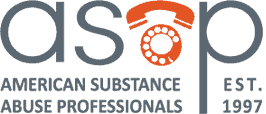Effective, February 29, 2012, the Federal Motor Carrier Safety Administration (FMCSA) published a final rule for drivers regarding physical qualifications, drug/alcohol testing and inaccurate use of the term actual knowledge.
Schedule I Drugs Prohibited
The rule as stated in Section 382.213 clarifies that drivers may not use Schedule I drugs and be qualified to drive commercial motor vehicles (CMVs) under any circumstances. Prior to this rule CMVs were prohibited from using a Schedule I drug except when “prescribed by a licensed medical practitioner who has advised the driver that the prescribed substance will not adversely affect the driver’s ability to operate a CMV.” Schedule I drugs are defined as drugs with high abuse potential, no currently accepted medical use in treatment in the United States, with a lack of accepted safety for use of the substance under medical supervision.
Refusal to Test
The rule prohibits drivers from refusing to submit to pre-employment and return-to-duty drug or alcohol testing. Prior to the ruling Sec.382.211 only prohibited drivers from refusing to submit to post accident, random, reasonable suspicion or follow-up drug or alcohol tests. The rule harmonizes FMCSA’s provisions regarding pre-employment and return-to-duty test refusals with corresponding Department of Transportation (DOT)-wide provisions.
Actual Knowledge
The rule amends Sec 382.201 and 382.215 correcting the inaccurate uses of the term “actual knowledge.” The prohibitions in these two sections related to an employer’s knowledge relating to testing, not observation. In order to remedy the inaccuracies the rule replaces the term with “knowledge.” Actual knowledge occurs when an employer directly observes or otherwise learns that a driver is using controlled substances or consumes alcohol while on duty. Actual knowledge is distinct from an employer knowing that an employee-driver tested positive or refused a DOT drug or alcohol test.

